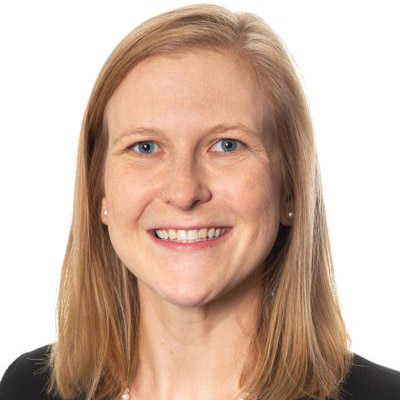Presenter Profile

Kristyn Jeffries, MD, MPH
University of Arkansas for Medical Sciences
Arkansas Children's Hospital
kmelchiors@uams.edu
Dr. Kristyn Jeffries is an assistant professor in pediatrics at University of Arkansas for Medical Sciences and an attending physician in pediatric hospital medicine at Arkansas Children's Hospital. She completed medical school at Indiana University School of Medicine followed by pediatrics residency at University of Alabama in Birmingham and pediatric hospital medicine fellowship at Children's Mercy in Kansas City. She is co-chair of the Injury Free Social Media committee and helps manage the Injury Free Instagram. She currently serves as the medical director of Infant Child Death Review at Arkansas Children's, a member of the Trainees for Child Injury Prevention Alumni committee, and serves on the Arkansas AAP Chapter Board of Directors. She is passionate about injury prevention and advocacy, and loves when she can share these passions with trainees.
Presentations
Empowering Tomorrow’s Child Advocates through the Trainees for Child Injury Prevention (T4CIP) Program
Kristyn Jeffries, MD, MPH
Maneesha Agarwal, MD, FAAP
Tracy Mehan, MA
Gary Smith, MD, DrPH
Injuries remain the leading cause of death for children in the United States, yet medical trainees inconsistently receive education about pediatric injury prevention. Likewise, though the Accreditation Council for Graduate Medical Education (ACGME) requires pediatric residency programs to provide education about advocacy, trainees often have limited experiences with implementing these skills, potentially hindering their engagement with advocacy in the future. The Trainees for Child Injury Prevention (T4CIP) Program was created to help bridge these gaps by providing facilitated support in trainee-initiated outreach activities to promote local and national engagement in injury prevention.
T4CIP is sponsored by the Center for Injury Research and Policy in Columbus, Ohio, and the American Academy of Pediatrics Section on Pediatric Trainees and Council on Injury, Violence, and Poison Prevention. A national cohort of trainees that includes medical students, residents and fellows are recruited to participate in a year-long program. During monthly virtual sessions, national experts share education on injury prevention and advocacy and teach participants how to deliver anticipatory guidance for families, address health inequities, leverage both traditional media and social media for advocacy, build community coalitions, and engage with policymakers. T4CIP participants then apply their newly acquired skills during two Days of Action each year highlighting different pediatric injury mechanisms. Upon completion of the T4CIP program, participants can remain involved with the T4CIP alumni committee to support new trainees and work on longer-term advocacy projects.
Since 2021, four cohorts consisting of 280 trainees (123 medical students, 116 residents and 41 fellows from 117 institutions across 39 states) have participated in T4CIP. Day of Action topics have included: high-powered magnet ingestions, pediatric firearm injuries, helmet use, safe sleep, drowning prevention, safe storage of cannabis edibles, and child passenger safety. Over these 7 Days of Action, the trainees have collectively shared close to 6,000 social media messages with over 20 million impressions. Participants have also published letters to the editor; appeared on television news programs; presented at hospital Grand Rounds; hosted trainee lectures; distributed and developed educational materials for community events; and drafted policy recommendations. Participants report increased knowledge with pediatric injury prevention and comfort with application of advocacy skills, with many trainees remaining engaged as program alumni.
This national training program successfully enriches the advocacy skills of pediatric trainees while meeting a critical gap in pediatric injury prevention education. Similar program models can be developed to promote injury prevention advocacy with different disciplines.
1. Identify the gaps in medical trainee education about pediatric injury prevention and advocacy
2. Understand the impact of national Day of Action campaigns led by program participants
3. Discuss how similar programs could be implemented in other disciplines at a local or national level
